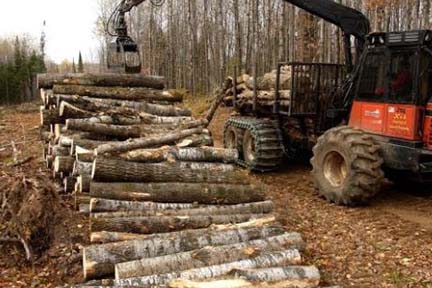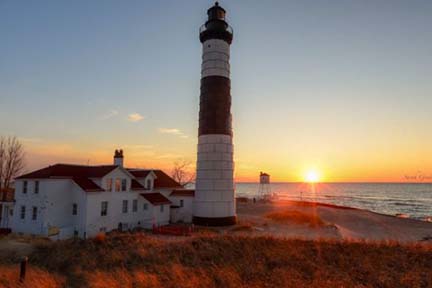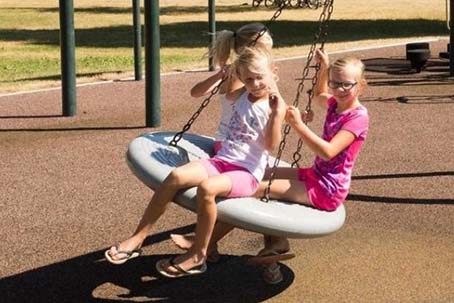
Michigan’s forest industry contributes $26 billion to economy
|
|
|||||
 |
|||||
DNR News |
|||||
|

|
|
|||||
 |
|||||
DNR News |
|||||
|


FOR IMMEDIATE RELEASE July 11, 2024 Contact: [email protected]
Gov. Whitmer Announces Grants to Secure Future of Advanced Automotive Manufacturing in Michigan Funding from Biden-Harris administration’s Inflation Reduction Act will retrofit factories, create and support good-paying jobs, bring supply chain home
LANSING, Mich.— Today, Governor Gretchen Whitmer announced Michigan has received $657 million from the Department of Energy (DOE) to retool existing factories for the transition to electric vehicles (EV), support good-paying manufacturing jobs, and help Michigan build out its EV infrastructure. The funding comes from the Biden-Harris administration’s Domestic Manufacturing Conversion Grants for Electrified Vehicles program, which provides cost-shared grants for the made-in-America production of efficient hybrid, plug-in electric hybrid, plug-in electric drive, and hydrogen fuel cell electric vehicles.
“Today’s investment from the Biden-Harris administration’s Inflation Reduction Act will build on Michigan’s economic momentum as we compete to lead the future of advanced manufacturing,” said Governor Whitmer. “These grants will help us retool our existing factories to build electric and hybrid vehicles right here in Michigan. We must be proactive if we are going to keep building the cars and trucks the people rely on in America, and I am proud that Michiganders are ready to roll up their sleeves and get it done. Let’s keep bringing manufacturing and supply chains back to America by doing what we do best—build, baby, build!”
“The next generation of vehicles should be built by American companies and American workers, which is why I’m so happy to see what’s happening today in Lansing at GM’s Grand River Assembly,” said U.S. Congresswoman Elissa Slotkin. “Today’s announcement is a step towards that goal and will ensure the plant is well-equipped to build new, advanced electric vehicles. Whether or not you drive an EV today, or ever care to, there’s no denying they will be a big part of the vehicles of tomorrow. All you have to do is look at Europe and Mexico and see that China is looking to be *the* manufacturer of this next generation of cars. That’s why it’s essential to our economic and national security that electric vehicles, the batteries and components they run on, and other critical products are made in America. The funding announced today will also protect existing jobs and generate new ones while driving economic growth in the area, so it’s a clear win for Lansing.”
The program aims to support a just transition for workers and communities in the shift to electrified transportation, with particular attention to communities supporting facilities with longer histories in automotive manufacturing.
General Motors Receives $500 Million to Upgrade Lansing Grand River Plant
General Motors will receive $500 million to upgrade its Lansing Grand River Plant to allow for the production of new electrified models and enable the facility to be considered for future EV programs. The investment will preserve 650 jobs while creating 50 new jobs. The continued operation of this facility will also positively impact communities across the region by enabling GM to diversify its contract and vendor network within the state of Michigan.
ZF North America Receives $157 Million to Modernize Marysville Facility
ZF North America, based in Northville, will receive up to $157.7 million to modernize its Marysville facility to allow for the production of electric vehicle components to meet potential future customer orders, strengthening the American EV supply chain and providing robust benefits to the local community. The investment will preserve 536 jobs with the potential to add to these numbers by the end of the decade and support ZF’s commitment to working with local community groups to mitigate impacts on the local environment.
“This critical federal investment will protect jobs and support middle-class families working in the manufacturing industry,” said Susan Corbin, director of Michigan’s Department of Labor & Economic Opportunity. “This funding is not just about maintaining our current workforce; it’s about expanding it. By investing in our clean energy future, we are ensuring that our workforce grows and that Michiganders are equipped with the skills needed to thrive in an ever-changing economy, underscoring our commitment to a sustainable future and a robust, resilient job market for generations to come.”
Michigan has the expertise to be a national leader in the automotive industry’s transition to EVs, and this grant will ensure we can do so in a responsible, accessible and equitable manner that honors our existing business infrastructure and skillsets,” said Quentin L. Messer, Jr., CEO of the Michigan Economic Development Corporation. “We are grateful to the Department of Energy for its vision in creating this opportunity and congratulate the grantees on this accomplishment. While work remains, Team Michigan is excited about how these grants will help implement our ‘Make it in Michigan’ economic development strategy focused on People, Places and Projects along the grantee companies and those throughout their respective supply chains.”
ZF will also receive up to $10 million from a matching grant from the Battery and Advanced Manufacturing Challenge from the Make it in Michigan Competitiveness Fund. Announced in February 2024, the Challenge was developed to help companies leverage unprecedented federal opportunities made available through the Biden-Harris Administration’s CHIPS Act, Inflation Reduction Act and Bipartisan Infrastructure Law. Governor Whitmer and the Michigan Infrastructure Office challenged companies applying to support workers with fair pay, good benefits, skill development and protect their union rights.
To date, the Make it in Michigan Competitiveness Fund has invested $48.8 million, leveraging $276 million in federal funds, a return on investment of more than 5:1.
“Investments from the Inflation Reduction Act are creating jobs in hard-working counties across Michigan, building the future of sustainable transportation and clean energy,” said Zachary Kolodin, Michigan’s chief infrastructure officer and director of the Michigan Infrastructure Office. “That’s why we are competing to win every dollar through fiscally responsible investments like the Make it in Michigan Competitiveness Fund and Technical Assistance Center. We are grateful to President Biden and our representatives in Washington for making these investments possible and bringing the EV supply chain right home where it belongs – in Michigan.”
A new report from Climate Power shows Michigan continues to be a national leader in clean energy and electric vehicle manufacturing. The Battery and Advanced Manufacturing challenge complements Michigan’s leadership and marks an exciting step towards a cleaner future.
Bolstered by President Biden’s Inflation Reduction Act (IRA), Michigan is No. 1 in the nation for IRA projects, which have resulted in more than $25 billion in new investments across the state. This funding, in tandem with Governor Whitmer’s clean energy legislative package and bipartisan economic development tools, is growing the middle class, creating good-paying, in-demand manufacturing jobs, bringing supply chains home, and lowering energy costs for families.
For more information about the Make it in Michigan Competitiveness Fund and how to apply for funding or technical assistance, please visit www.michigan.gov/whitmer/
|

|
|
||||
 |
||||
DNR News |
||||
|


FOR IMMEDIATE RELEASE
July 10, 2024 Contact: [email protected]
Gov. Whitmer Secures Funding to Guarantee Free School Breakfast, Lunches, for Michigan Students Next Year, Saving Families $850 Each Year
LANSING, Mich. – Today, Governor Whitmer announced the newly passed education budget for next school year will continue providing universally-free breakfast and lunch to Michigan’s 1.4 million public school students throughout the school year.
“As a parent, I remember the chaos of weekday mornings when you’re just trying to get your kids out the door and off to school on time,” said Governor Whitmer. “In the budget for next school year, we are reducing that burden on Michigan families by providing free breakfast and lunch for every student throughout the school year and over the summer too. Free school meals save parents $850 per year per kid and valuable time every morning. When students are fed, they can focus better in class. Let’s keep working together to feed our kids and ensure every family has the support they need to thrive.”
“As a dad of three, I know how important it is for my children to be able to focus on learning and growing at school, just like every parent.” said Lieutenant Governor Gilchrist II. “That’s why Governor Whitmer and I have continued to fight for Michigan’s students, ensuring all 1.4 million of them get free breakfast and lunch during the school year. We’ll continue to fight for Michigan’s students all year long.”
The FY25 budget allocates funding to ensure that free school breakfasts and lunches throughout the school year will continue to be available to students next year. It is projected that Michigan schools will have served 76.3 million breakfasts and 135.6 million lunches to students throughout the 2023-2024 school year.
Since taking office, Governor Whitmer has continued to fight for students, making sure everyone has the support and resources they need to succeed in our schools. By guaranteeing free school breakfast and lunch to students in the FY25 budget, Governor Whitmer is alleviating the financial burden on Michigan’s families and ensuring students can focus on learning.
A Better, More Affordable Education
Governor Whitmer remains a steadfast ally for students and families in Michigan’s school system. Since taking office, she has made strategic and specific investments in Michigan’s education sector, fighting for real results that support students across the state. These accomplishments include:
|

|
|
|||
 |
|||
DNR News |
|||
|